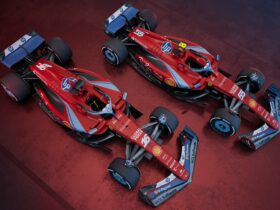Digitalised fleet management involves overseeing all aspects of the fleet, including vehicle purchasing and maintenance and data analysis
In the modern world of Workcompanies are faced with a multitude of challenge of a different nature, also in relation to the sector in which they go to dive. The speech applies to every type of reality and, for this reason, it does not go beyond the companies of transport e logistics which, in reality, with the birth of e-commerce and riding services in general, respond to increasingly specific and complex requests to be made by customers, whether they are B2B o B2C.
In any case, the advent of technology has also made various tools available to transport companies with which to be able to cope with an increasingly competitive e crowded. Certainly, one of the most important aspects that a company of this type must refer to is the management of corporate fleet, since it is the set of means responsible for the company’s profits and, potentially, also for the losses. The company car fleettherefore, must be constantly monitored in order to optimize its performance and reduce losses.
We can certainly say that one of the most revolutionary concepts within the reference panorama is the digitization of fleet management. There digital fleet management it is useful for offering innovative solutions and improving the operational efficiency and profitability of the enterprise. The digital management of the company fleet takes place through a set of strategiesprocesses and technologies used for the monitoring, organization and optimization of company vehicles.
Digitalised fleet management involves overseeing all aspects of the fleet, including vehicle purchasing and maintenance, driver monitoring, route planning and data analysis. Moreover, it must be kept in mind that for a reality operating in the transport sector, an optimized management of the fleet represents a crucial component under various aspects. The control of vehicles must be accurate and constant and, for this reason, some sector providers have made management software available to companies for company cars and commercial vehicles in general. Obviously, when you sign a contract with a provider, you need to choose in a reasoned manner, in order to draw from professional realities capable of supplying advanced systems including all the functions necessary for the fleet management.
Fleet management software: everything you need to know about their functions
As you will have had the opportunity to deduce from the premises made, fleet management software today proves to be essential for the optimized management and efficiency of the car fleet for a company, so much so that they are used not only by companies operating strictly in the logistics or transport sector in general. These software have a large number of features with which it is possible to monitorcheck and optimize the activity from the fleet.
With fleet management software it is possible to monitor vehicles in real time, using the systems GPS connected to cars or commercial vehicles. Thanks to these software it will also be possible to keep track of the routes, controlling the movements of the vehicles and prevent theft or unauthorized use. Furthermore, fleet management software keeps track of scheduled maintenance plans, kilometers traveled and the maintenance status of individual vehicles. Among other things, fleet management software allows you to manage driver performanceoptimize routes and monitor consumption.
Why use fleet management software?
Reconnecting to what has just been said, it is possible to understand how fleet management software assists companies in reduction of consumption It is in the cost cutting related to a possible improper use of the means o lack of maintenance: a factor that could heavily affect the general performance of the vehicles, leading – especially in the long term – to the need to carry out expensive extraordinary interventions or to a reduction in performance.
With reasoned fleet management implemented with related software, it is possible to significantly improve the company’s performance and productivity, making it possible to assert itself in the increasingly crowded reference market. Furthermore, thanks to the monitoring of consumption and that of the routes, it is possible to choose the routes capable of reduce consumptionbreaking down i fuel costs on the one hand and also reducing the environmental impact of the enterprise.















Leave a Reply
View Comments